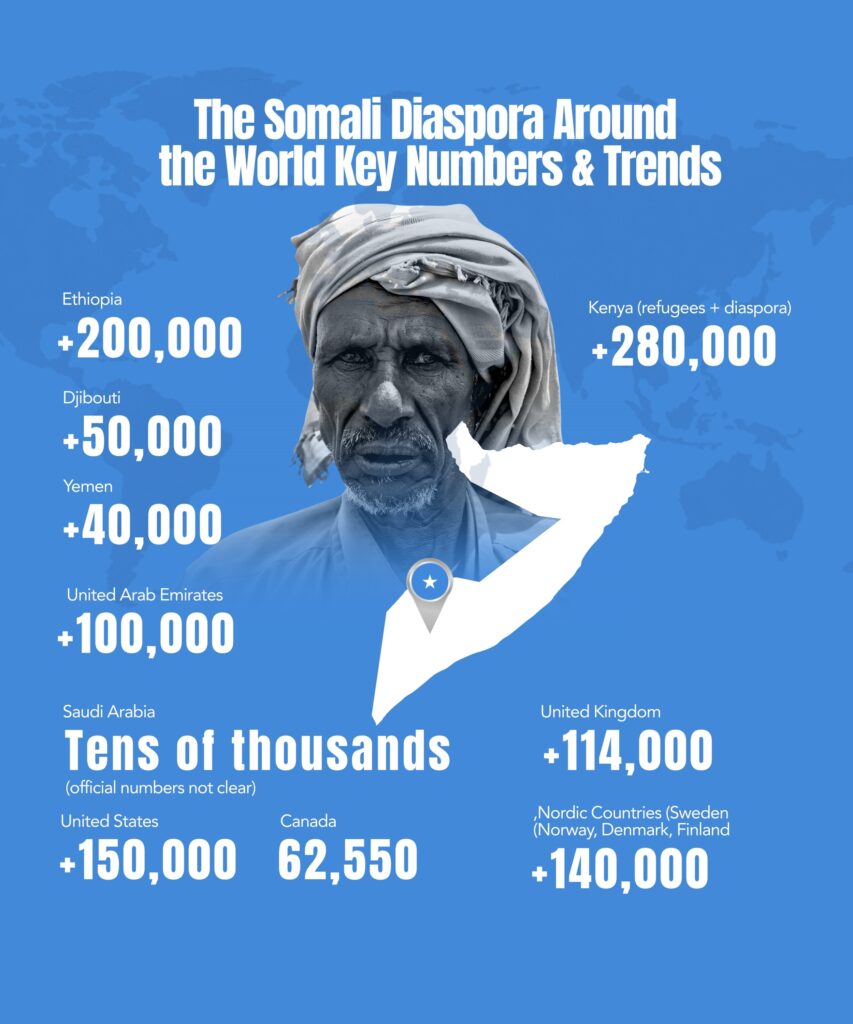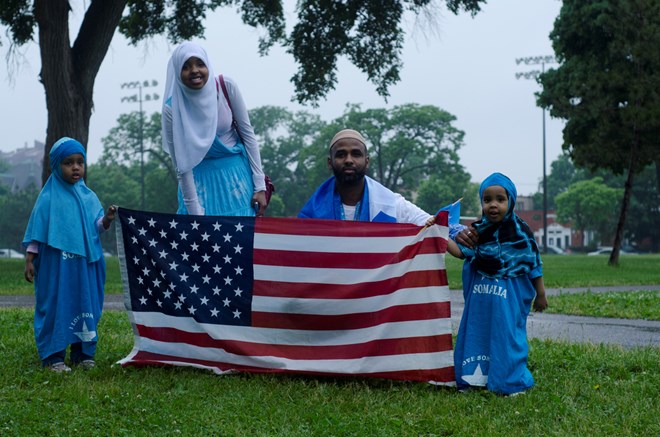The global Somali diaspora is a dynamic and influential community, with millions of individuals contributing to economies, cultures, and societies worldwide.
Understanding the distribution, economic impact, and cultural significance of Somalis abroad provides valuable insights into this vibrant group.
Global Somali Diaspora by the Numbers
While exact figures can vary, estimates suggest that approximately 3 million Somalis reside outside Somalia.

These individuals have established communities across several key regions:
- North America: The United States and Canada host significant Somali populations, with Minnesota being a notable hub.
- Europe: Countries like the United Kingdom, Sweden, Norway, and the Netherlands have sizable Somali communities, often concentrated in urban areas.
- Middle East: Nations such as Yemen and the United Arab Emirates have been destinations for Somali migrants, though numbers can fluctuate due to regional dynamics.
- Africa: Neighboring countries like Kenya and Ethiopia have long histories of Somali migration, with established communities contributing to local economies and cultures.
Economic Contributions of Global Somali Diaspora: Remittances and Beyond
The global Somali diaspora plays a crucial role in supporting the economy of Somalia through remittances. Annually, it’s estimated that the Somali diaspora sends approximately $1.3 billion back home.
These funds are vital for meeting basic needs like food, education, and healthcare.
Beyond remittances, the diaspora contributes to their host countries’ economies through entrepreneurship, labor, and cultural exchange.
Somali-owned businesses, particularly in sectors like retail, transportation, and hospitality, are prevalent in many diaspora communities.
Reasons for Migration
The migration of Somalis abroad has been influenced by various factors:
- Conflict and Instability: Ongoing conflicts and political instability in Somalia have led many to seek refuge and better opportunities elsewhere.
- Economic Opportunities: The pursuit of better employment prospects and improved living standards has been a significant motivator for migration.
- Educational Pursuits: Access to quality education and training opportunities abroad has attracted Somali students and professionals.
- Family Reunification: Established diaspora communities have facilitated family reunification, strengthening transnational ties.
Global Somali Diaspora: Cultural Identity and Community Engagement
Despite being spread across the globe, Somali communities maintain strong cultural ties.
Community organizations play a pivotal role in preserving Somali heritage, providing support services, and fostering a sense of belonging.
These organizations often focus on:
- Cultural Preservation: Celebrating Somali traditions, language, and customs through events, festivals, and educational programs.
- Social Services: Offering assistance in areas like housing, employment, and legal support to help community members integrate into their host societies.
- Youth Engagement: Providing programs and initiatives aimed at empowering the younger generation and ensuring the continuity of cultural identity.








